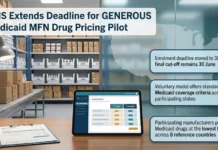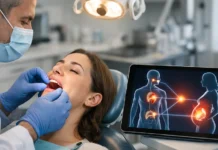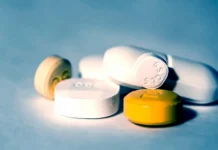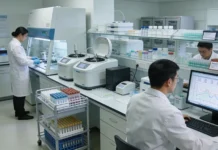Varicose veins are a common problem among adults in America. In fact, approximately 24% of adults living in America have visible varicose veins.
With that, many patients are now turning to surgeons and vein specialists to have them removed. There have also been an increasing number of vein clinics and institutions specializing in vein health in the United States, so finding a vein specialist is not that difficult these days. Patients can now simply book an appointment with any New York, Boston, LA, Phoenix, and Dallas vein clinic.
So to help patients prepare for their next appointments, we discussed what exactly is varicose veins and the available treatments for them.
About Varicose Veins
Varicose veins are a condition caused by damaged vein walls and valves. It is often considered a cosmetic problem because these damaged veins become swollen, leading them to bulge on the surface of the skin.
Many patients are often embarrassed by how it looks on their skin so they often turn to a vein specialist. Because while varicose veins are a common condition among adults, it does not simply go away naturally. That is why it is important to talk to a medical professional to have them permanently and completely removed.
It is also worth noting that varicose veins, although common, can still lead to or indicate a much more serious problem. There have been studies that show that patients with varicose veins are at a higher risk of developing ulcers. Varicose veins can also be an underlying symptom of phlebitis, deep vein thrombosis, and many more.
Because of this, experts recommend that patients with varicose veins should always be on the lookout for other symptoms such as swelling, pain, cramps, hyperpigmentation, and so on. If these symptoms persist, then it might be best to see a vein specialist and have them removed.
Treatments
Venous disease treatment has gradually improved over the years. Nowadays, a patient can simply visit any vein clinic in America and make their varicose veins go away in less than 30 minutes.
Remember that while there are other specialists who recommend medications for varicose veins, they are often not as effective as surgeries and outpatient procedures like the ones cited below:
Ablation
Almost all vein clinics around the US offer ablation as a treatment for varicose veins. It not only revolutionized vein therapies today but also provided more options to patients. Before any thermal ablation was approved for varicose vein, patients who suffer from it only had to rely on surgical stripping and ligation. But thanks to the latest innovations in the field of venous treatments, patients now even have the option to choose between endovenous laser ablation (EVLA) and radiofrequency ablation (RFA).
The process of EVLA and RFA is similar. Since they are both thermal ablation, they use heat to treat the damaged veins and to make them less visible on the skin surface. Besides the thermal ablation device used in these types of treatments, the process is generally the same.
A doctor or specialist would puncture and insert a small catheter into the patient’s damaged vein. The inserted catheter would then send heat to the damaged vein, ultimately forcing them to close and making the patient’s varicose veins less visible.
Sclerotherapy
As for patients whose varicose veins are not that severe and are only experiencing spider veins, then sclerotherapy might be the best option for them.
Patients who opt for this type of treatment can immediately go back to work after the treatment. Since sclerotherapy requires little to no downtime, patients can resume intense activities well within one week and return to their normal everyday activities the same day after the treatment.
Given that sclerotherapy is often used to treat small varicose veins, the general process is really simple and straightforward. It involves microinjecting a sclerosing agent into the patient’s damaged vein. Just like thermal ablation, this process is also recognized by the FDA as well.
Improving Treatment Results
As mentioned earlier, surgeries and treatments are much more effective than remedies and medications. However, patients can still use the latter and make the surgery/treatment much more effective afterward.
Compression Stockings
Many doctors and vein specialists often recommend wearing compression stockings after undergoing any type of leg vein treatment. Doing so helps fast-track the healing process and makes treatment like sclerotherapy much more effective in the long run.
Nutritional Supplements
The best way to make any vein treatment last long is to simply stay healthy. One study recommends that plant-based and nutritional supplements such as ginkgo Biloba, vitamin K, coenzyme Q10, omega-3 fatty acids, and horse chestnut seed extract can help treat varicose veins.
So on top of surgeries and treatments, patients are also encouraged to exercise, practice healthy eating habits, and take any nutritional supplements when possible. Because at the end of the day, varicose veins can still reoccur if patients are not careful.



















